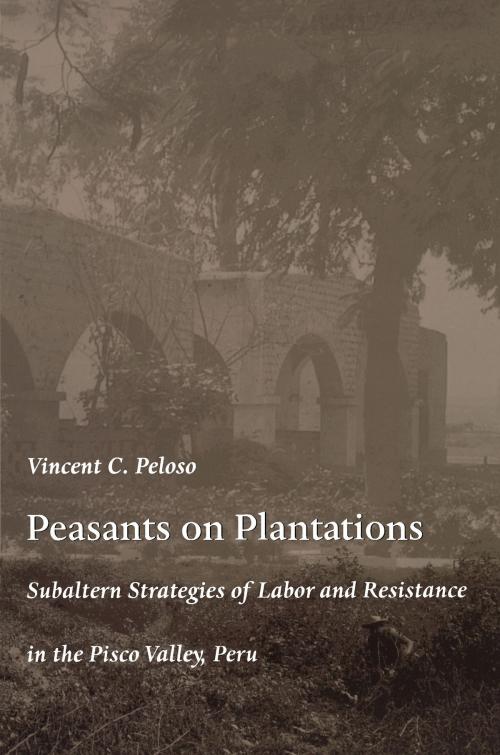Peasants on Plantations
Subaltern Strategies of Labor and Resistance in the Pisco Valley, Peru
Nonfiction, Social & Cultural Studies, Political Science, Politics, Labour & Industrial Relations, History, Americas, South America, Social Science, Anthropology| Author: | Vincent Peloso | ISBN: | 9780822397472 |
| Publisher: | Duke University Press | Publication: | March 3, 1999 |
| Imprint: | Duke University Press Books | Language: | English |
| Author: | Vincent Peloso |
| ISBN: | 9780822397472 |
| Publisher: | Duke University Press |
| Publication: | March 3, 1999 |
| Imprint: | Duke University Press Books |
| Language: | English |
After the 1854 abolition of slavery in Peru, a new generation of plantation owners turned to a system of peasant tenantry to maintain cotton production through the use of cheap labor. In Peasants on Plantations Vincent C. Peloso analyzes the changing social and economic relationships governing the production of cotton in the Pisco Valley, a little-studied area of Peru’s south coast. Challenging widely held assumptions about the system of relations that tied peasants to the land, Peloso’s work examines the interdependence of the planters, managers, and peasants—and the various strategies used by peasants in their struggle to resist control by the owners.
Grounded in the theoretical perspectives of subaltern studies and drawing on an extremely complete archive of landed estates that includes detailed regular reports by plantation managers on all aspects of farming life, Peasants on Plantations reveals the intricate ways peasants, managers, and owners manipulated each other to benefit their own interests. As Peloso demonstrates, rather than a simple case of domination of the peasants by the owners, both parties realized that negotiation was the key to successful growth, often with the result that peasants cooperated with plantation growth strategies in order to participate in a market economy. Long-term contracts gave tenants and sharecroppers many opportunities to make farming choices, to assert claims on the land, compete among themselves, and participate in plantation expansion. At the same time, owners strove to keep the peasants in debt and well aware of who maintained ultimate control.
Peasants on Plantations offers a largely untold view of the monumental struggle between planters and peasants that was fundamental in shaping the agrarian history of Peru. It will interest those engaged in Latin American studies, anthropology, and peasant and agrarian studies.
After the 1854 abolition of slavery in Peru, a new generation of plantation owners turned to a system of peasant tenantry to maintain cotton production through the use of cheap labor. In Peasants on Plantations Vincent C. Peloso analyzes the changing social and economic relationships governing the production of cotton in the Pisco Valley, a little-studied area of Peru’s south coast. Challenging widely held assumptions about the system of relations that tied peasants to the land, Peloso’s work examines the interdependence of the planters, managers, and peasants—and the various strategies used by peasants in their struggle to resist control by the owners.
Grounded in the theoretical perspectives of subaltern studies and drawing on an extremely complete archive of landed estates that includes detailed regular reports by plantation managers on all aspects of farming life, Peasants on Plantations reveals the intricate ways peasants, managers, and owners manipulated each other to benefit their own interests. As Peloso demonstrates, rather than a simple case of domination of the peasants by the owners, both parties realized that negotiation was the key to successful growth, often with the result that peasants cooperated with plantation growth strategies in order to participate in a market economy. Long-term contracts gave tenants and sharecroppers many opportunities to make farming choices, to assert claims on the land, compete among themselves, and participate in plantation expansion. At the same time, owners strove to keep the peasants in debt and well aware of who maintained ultimate control.
Peasants on Plantations offers a largely untold view of the monumental struggle between planters and peasants that was fundamental in shaping the agrarian history of Peru. It will interest those engaged in Latin American studies, anthropology, and peasant and agrarian studies.















